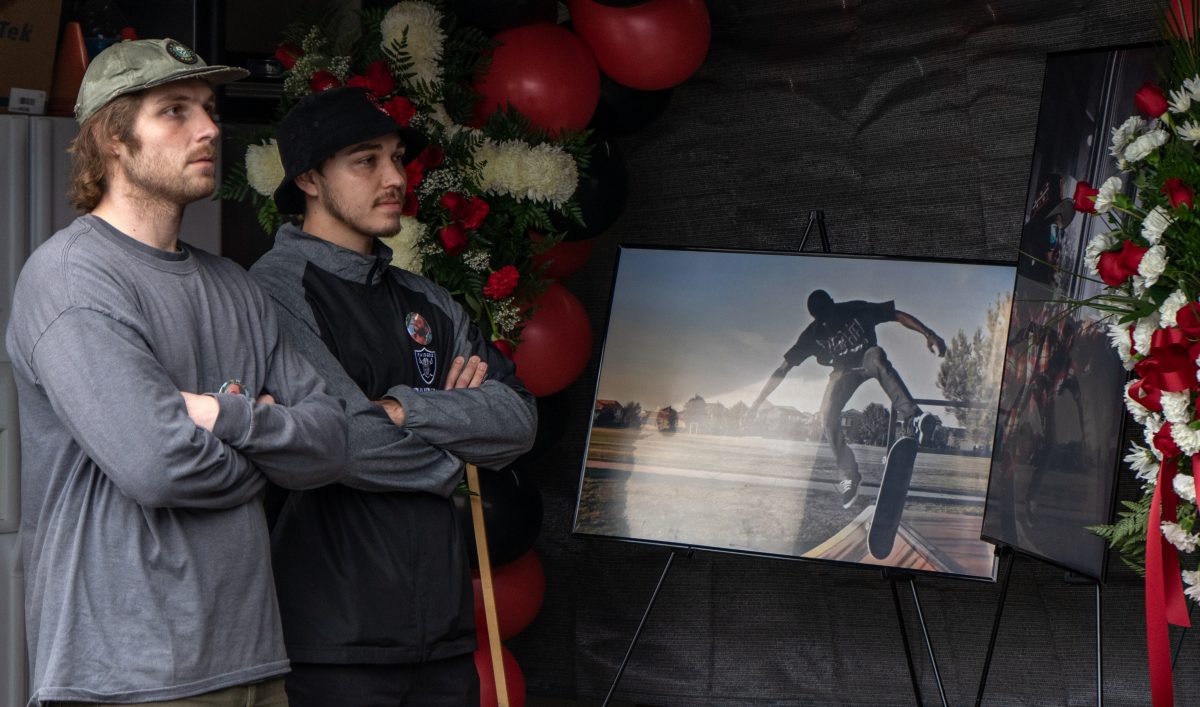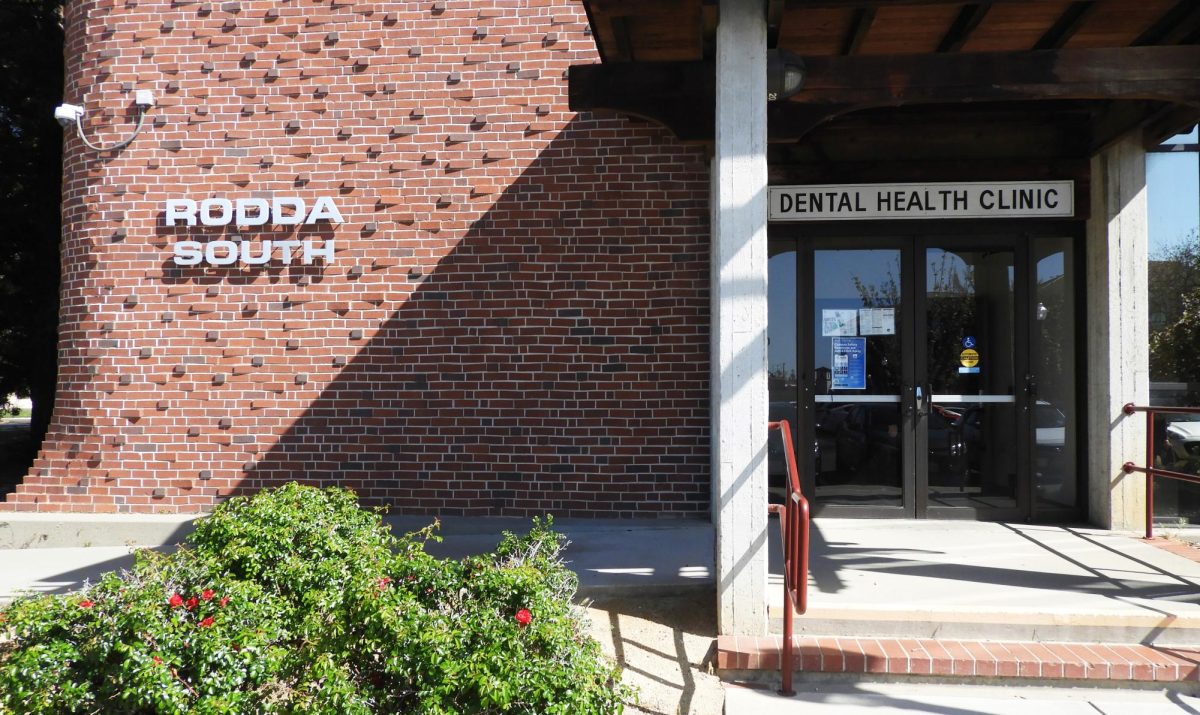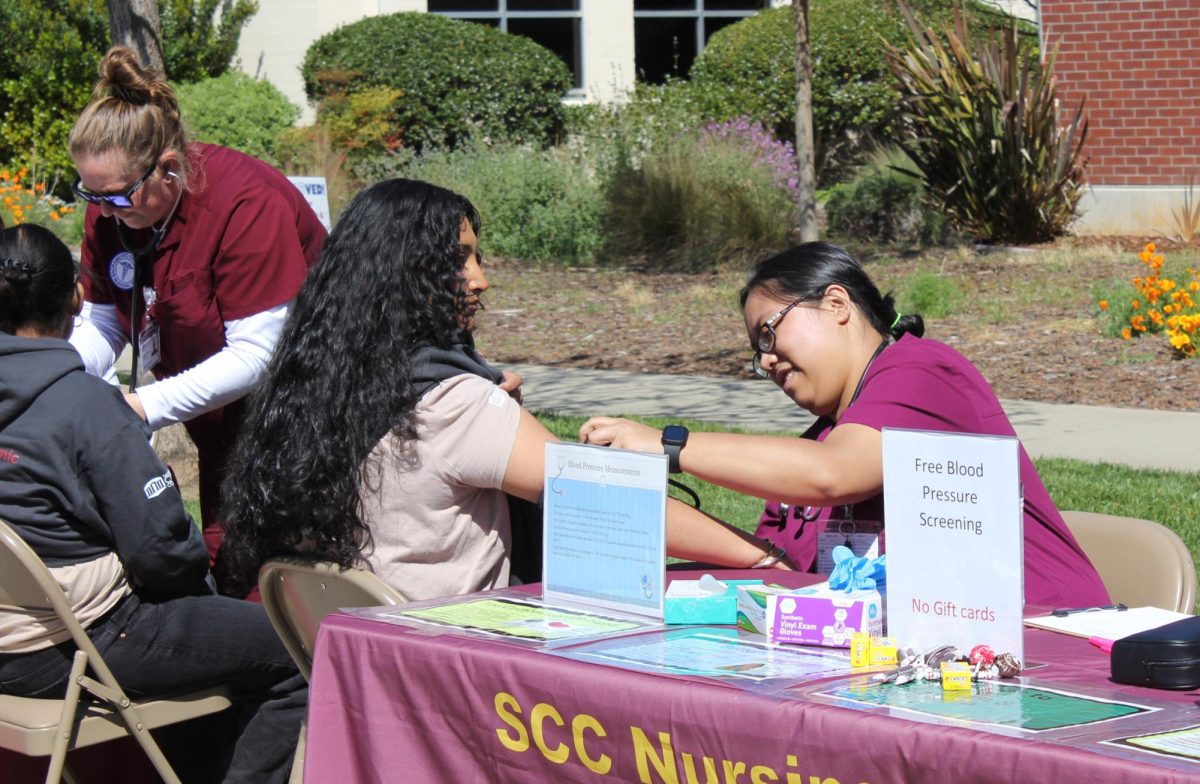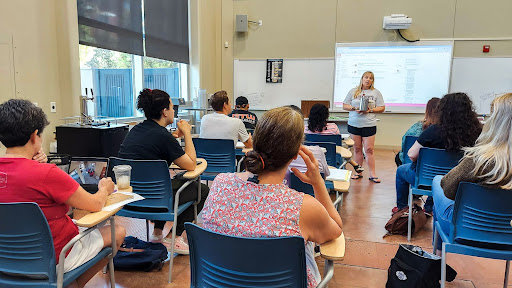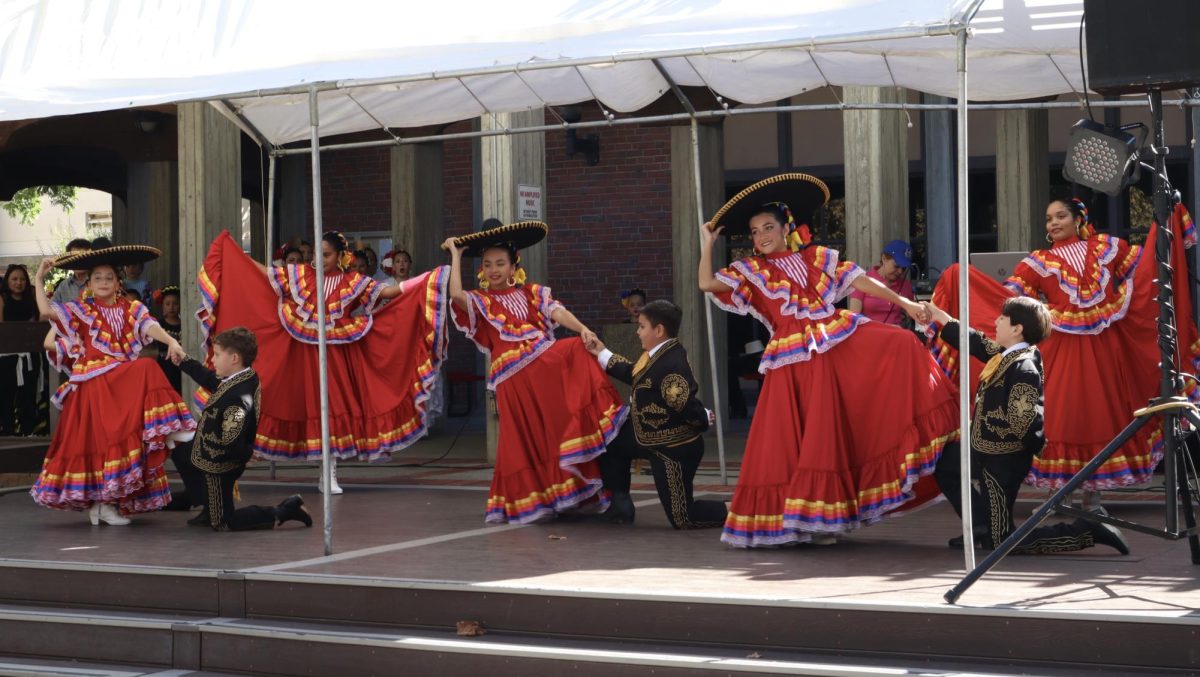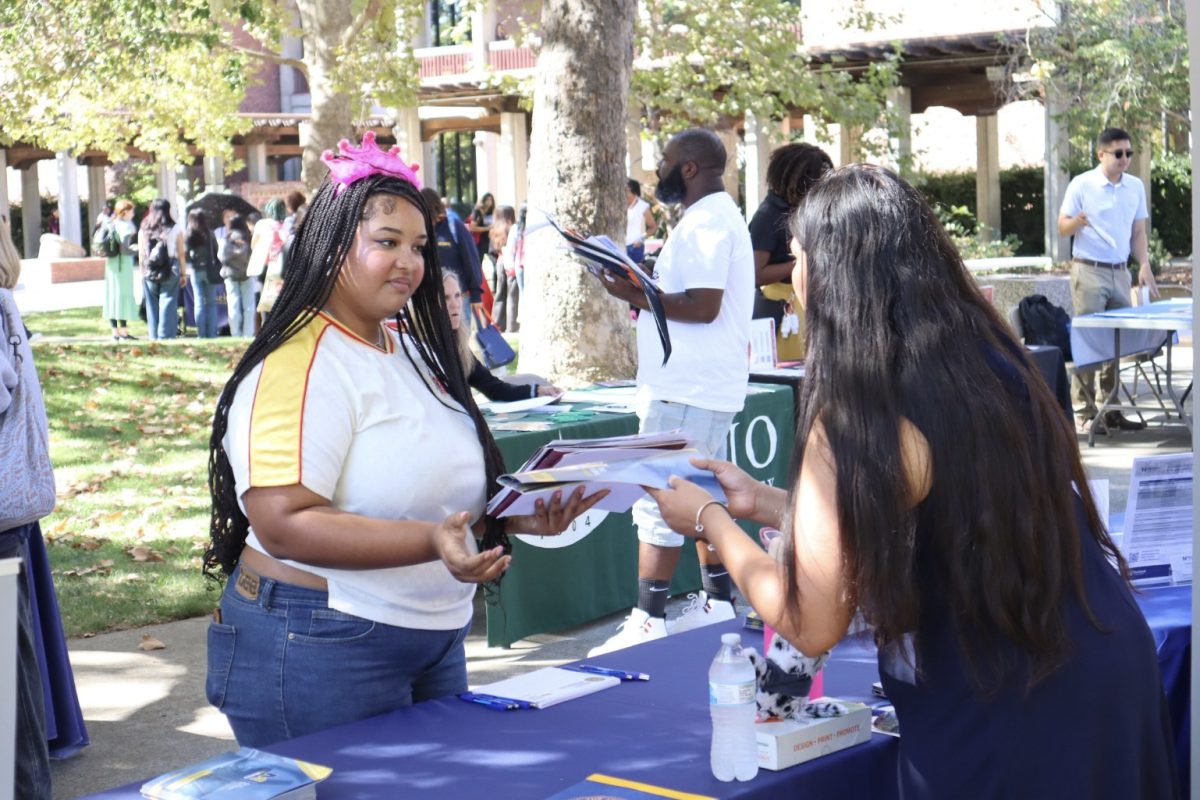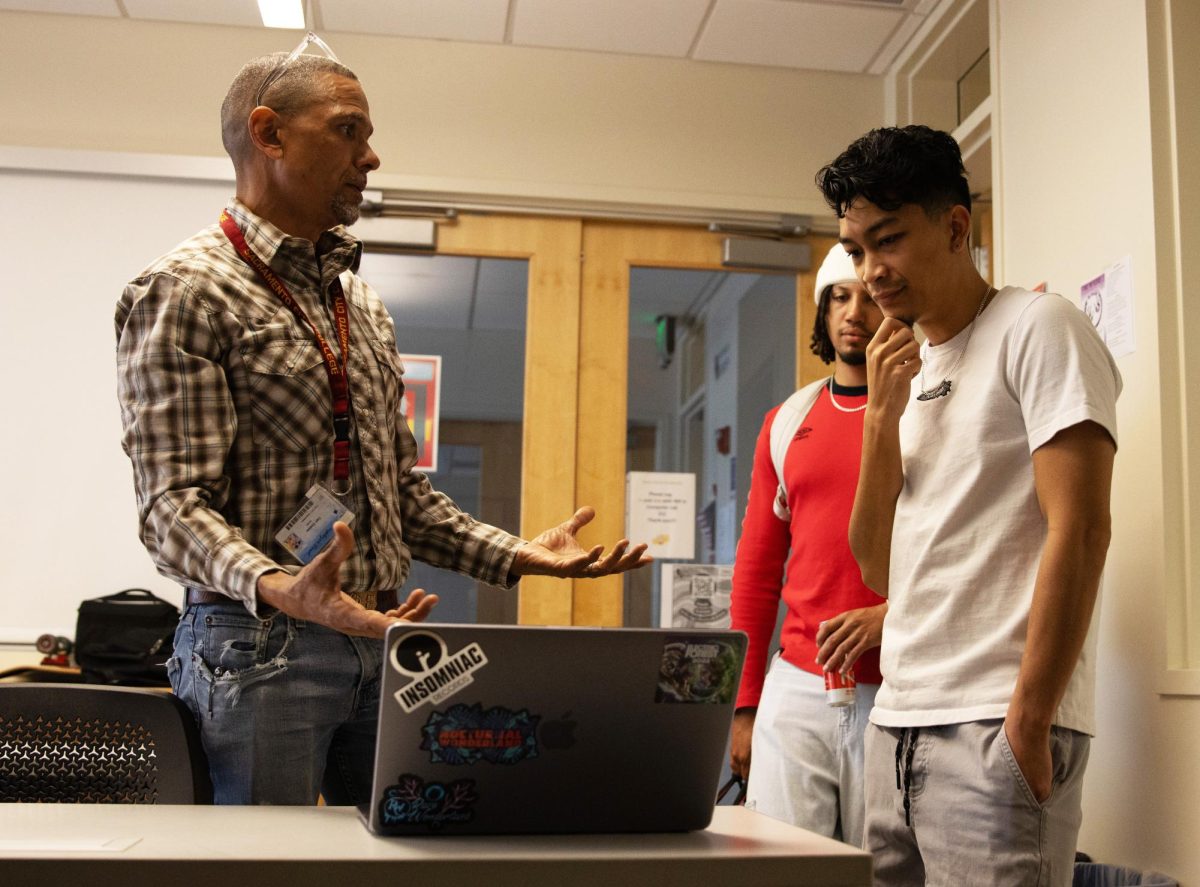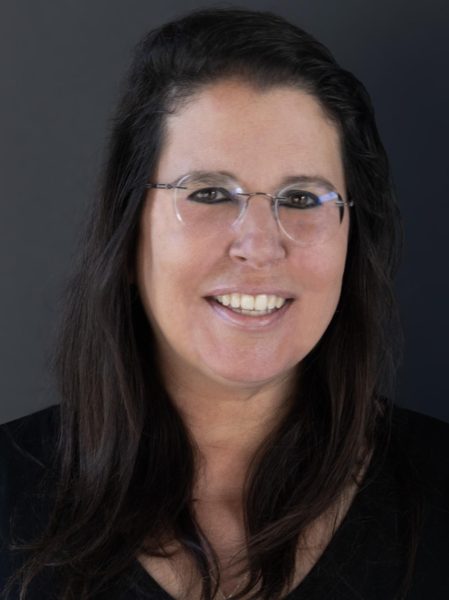“Imagine being in the organic chemistry class on campus, and you analyze the organic compounds in beer, all of a sudden it’s real, and you can taste and touch it, instead of analyzing a report of it or reading it from a book,” said overseer of the new Food-and-Beverage Lab Jessica Coppola, giving an example of how to bring food alive.
The idea behind the new Food and Beverage, or FAB, Lab at City College’s satellite location at UC Davis is to allow existing classes the option of being educated by using food.
“I love food and I can apply just about anything to food,” said Coppola, P.h.D., who oversees the FAB Lab, and is a professor of nutrition and food science.
Since the lab is in its first semester of operation there are still many things to be done to create a space equipped with everything needed in a food lab, according to Coppola. But this hasn’t stopped her from acquiring products to improve the program.
Some of the kitchenware that she has acquired for the lab are items that she feels would be easy for students to access at home, like hot plates, a portable oven, an ice cream maker and a dehydrator to name a few.
“If an anthropology class would like to prepare an ancient meal, we will have a mortar and pestle and they can grind the grains to make bread,” Coppola said. “If you’re a statistics teacher and you would like to do a statistical analysis of who likes cilantro and who doesn’t, you can come and use the food in the laboratory setting for that.”
“To supplement this vision, Coppola is encouraging anyone with an idea for the FAB Lab to voice them in a brainstorming forum in the hopes of gaining more public support and guidance.”
On Sept. 29, professional homebrewer Annie Johnson taught a hands-on experience of packaging beer to Nutrition Class 336.
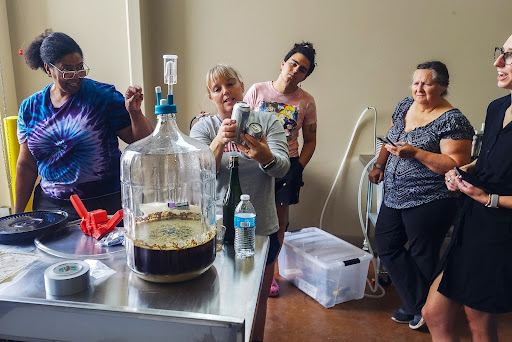
Johnson, who was the first African American to win the Homebrewer of the Year award in 2013, and first woman recipient since 1983 to win the award, likes a mix of both hands-on learning and teaching.
However, Johnson keeps the lecture short, because according to her, “brewing is all hands on.”
“Some of the students would like to brew but they don’t know what it’s about, and this is how you can get them excited,” Johnson said. “They can feel the ingredients, smell the ingredients, see the process, and know that it takes a lot of time.”
Ethnic studies major, Carla Vazquez, explained that being directly involved in the project helped her to enjoy learning. “Being able to smell and taste the hops and touch the material and actually engage in the process is why I enjoy hands-on learning,” she said. “It makes it personal with the instructor because it is not hard asking questions when you are right there with them.”
“I didn’t know what to think about signing up for the class but that it sounded like fun,” retiree Denise Lyons said. In Lyons’ personal time she already experiments with fermenting her own cheese and wine, and now she can add beer to that list.
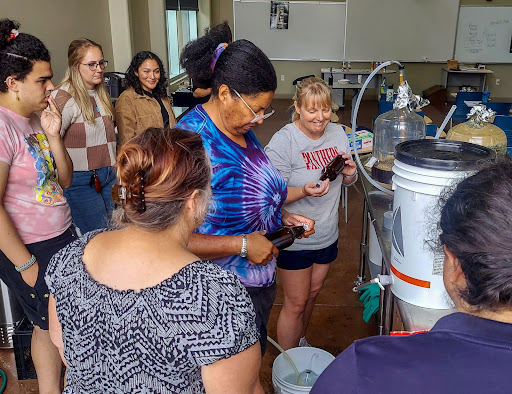
The FAB Lab is still in its beginning phase, but because it is not affiliated with any one course, it’s a space where any City College food-related course like the beer making class can use its products to assist with their hands-on curriculum needs.
Coppola explained that it is the beginning of a great opportunity for City College, and her hope is that it can one day become a place like City College’s MakerSpace, where students can use the lab to try out their own food creations.
For now, the beer-making class was one step closer to Coppola’s goal of bringing food and nutrition curriculum to life with food. Her vision is that the lab will grow to provide more opportunities for classes to come in and experiment with food in the future.

